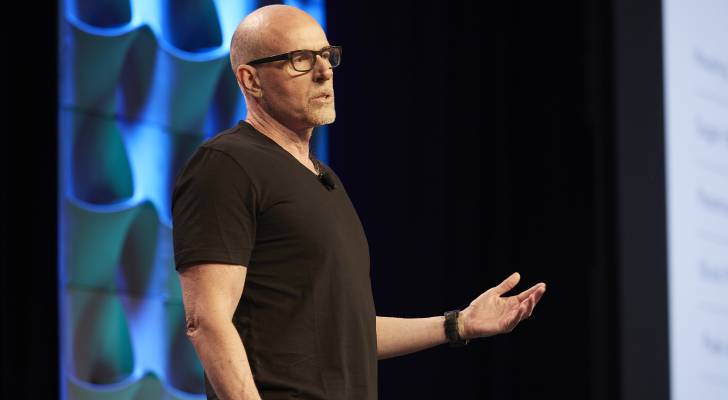
Scott Galloway might be a college professor at New York University, but he has a whale of a time living like a rockstar.
In a 2024 interview with Lewis Howes, he said he frequently “bombs off to the Beverly Hills Hotel,” goes to the Stagecoach Festival and enjoys a luxe lifestyle.
Don’t miss
- I’m 49 years old and have nothing saved for retirement — what should I do? Don’t panic. Here are 5 of the easiest ways you can catch up (and fast)
- You’re probably already overpaying for this 1 ‘must-have’ expense — and thanks to Trump’s tariffs, your monthly bill could soar even higher. Here’s how 2 minutes can protect your wallet right now
- Gain potential quarterly income through this $1B private real estate fund — even if you’re not a millionaire. Here’s how to get started with as little as $10
With multiple successful podcasts and business ventures under his belt, Galloway’s fortune isn’t surprising. But he admits that part of his wealth was created by circumstance.
“The ultimate intergenerational theft just happened and it was COVID,” he told Howes, slamming the government’s response for being more focused on preserving wealth than lives.
Galloway said he believes the pandemic relief efforts widened the wealth gap between the young and old, which could be one reason younger Americans are hesitant to start families now.
Great transfer of wealth
According to the Government Accountability Office, from 2020 to 2021 — the height of the pandemic — the federal government passed six laws that released $4.6 trillion of funding for pandemic response and recovery. However, only 85% of it wasn’t spent.
“Where did it end up?” Galloway asked. “It ended up in the market so it sent housing and stock prices skyrocketing.”
The S&P 500 surged roughly 80% from March 2020 to December 2021. Meanwhile, the median U.S. home price has surged 45% from 2020 to 2025, according to Redfin.
Galloway argued that these policies benefited those who already owned most of the assets, usually older Americans like him.
“All you’re doing is seeding advantage to the incumbents,” he says.
Younger people who missed out now face a housing crisis, which is impacting their ability to start families and have children. A study published in the journal Labor Economics found that a 10% rise in home prices suppressed births per woman by 0.01 to 0.03.
That means if you’re under 35, the odds are stacked against you. However, that doesn’t mean there aren’t any opportunities to build and accumulate wealth.
Read more: Want an extra $1,300,000 when you retire? Dave Ramsey says this 7-step plan ‘works every single time’ to kill debt, get rich in America — and that ‘anyone’ can do it
Against all odds
Since Galloway argued that economic policies bolster those who hold assets, the obvious way to shift the odds in your favor is by playing the game: accumulate assets and boost your earnings.
Acquiring high-value skills in industries facing labor shortages could be an excellent way to bring in more income. For example, an elevator installer can earn roughly $99,000 a year without a college degree.
Minimizing debt and maximizing investments can also tip the scale in your favor. According to Empower, the median net worth of a person in their 20s is just $7,638 and for someone in their 30s, it’s $35,649.
If you’re in these age groups, you can outperform your peers with a few years of above-average income and lower-than-average debt. Remember that time is on your side, so accumulating even modest wealth early can help you enjoy the power of long-term compound growth.
What to read next
- Don’t have the cash to pay Uncle Sam in 2025? You may already be eligible for a ‘streamlined’ handshake with the IRS — here’s how it works and how it can potentially save you thousands
- Robert Kiyosaki warns of a ‘Greater Depression’ coming to the US — with millions of Americans going poor. But he says these 2 ‘easy-money’ assets will bring in ‘great wealth’. How to get in now
- Here are 5 ‘must have’ items that Americans (almost) always overpay for — and very quickly regret. How many are hurting you?
This article provides information only and should not be construed as advice. It is provided without warranty of any kind.